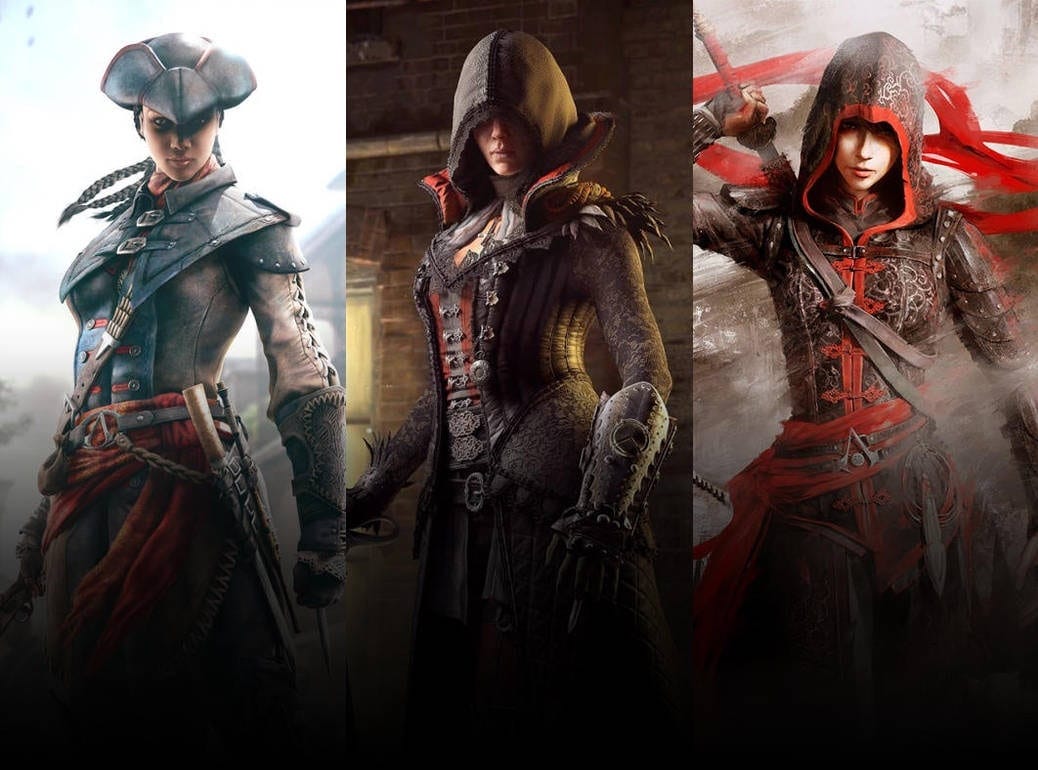It’s Time for Assassin’s Creed to Change
The first Assassin's Creed game did a lot of new things for AAA gaming. The game was an immersive open world experience like nothing seen in mainstream gaming until then. To call it a phenomenon is an understatement. And yet, it wasn't apparent in 2007 that Assassin's Creed would change the game. Now, in 2019, there are few franchises which have left their mark on the industry more than Assassin's Creed.
Assassin's Creed was about two men living in two different times. The player controls Desmond Miles, a man who lives in the modern day and who finds himself at the center of an international conspiracy. Desmond steps into The Animus, a machine that lets its user see the memories of their ancestors. Desmond, in turn, controls his ancestor Altaïr Ibn-La'Ahad — an assassin living in the holy land in 1191. Most of the game is spent fighting in the secret war between the Templars and the Assassins. But every once in a while the narrative jumps back to the present to show players the war is still waging.
At the time, the narrative was one piece of the incredibly innovative dish Ubisoft was serving up. But it was only one part. The stealth combat, the large map, and the open world nature of the quests were all also one-of-a-kind back then. Even the verticality of the game — which Ubisoft may have gotten carried away with — was incredible and unique at the time.

It's been over ten years since Assassin's Creed hit shelves. Ubisoft has released ten more main AC games and almost as many secondary games in the series. They've experimented with nearly every component of the franchise. In that time, the saga has had its high points and low points. But with 2017’s Assassin's Creed: Origins and 2018’s Assassin's Creed: Odyssey, the franchise is the best it's ever been. Unfortunately, Ubisoft has never found the confidence in its project necessary to walk away from the one thing that has never worked.
In Assassin's Creed, every time the player switched back from Altaïr to Desmond, it was a clunky and unwelcome interruption. The narrative ripped players back into Demond’s life with the jolting unease that Desmond must have felt climbing out of The Animus. It just never worked. But Ubisoft has stuck with that central narrative conceit over and over again for ten years now. In each game, it has been an unwelcome intrusion into the overall flow. There is not a single Animus story break in the twelve-year history of this franchise that has ever justified itself. They have never been fun, interesting, intelligent, creative, or exciting. The story breaks are consistently one thing: boring. Which is exactly how one would expect to describe taking a break from secretly killing bad guys to file the necessary paperwork with HR.

This year, the Animus meta-story did worse than add a boring subplot to an exciting game. The fiction of the AC universe is that The Animus allows its user go see the memories of their ancestors. That's why Desmond could see the lives of Altaïr, Ezio, and Connor. However, this mechanic presupposes that every Assassin's Creed protagonist is part of a heterosexual relationship at one point or another. Without genetic children, there can't be genetic ancestors. And without genetic ancestors, there can't be genetic memories viewed hundreds of years in the future through The Animus.
But when players were given a deeper level of control than they've ever had over their character in the franchise's latest installment, Assassin's Creed: Odyssey. Part of this control included — for the first time — being able to play as a woman. On top of that, players were able to control their characters’ sexuality. This was a boon for representation in gaming. Gamers who had previously felt invisible to the gaming industry could create characters like them. Suddenly, an empowered army of exclusively gay female assassins was tearing through the Peloponnesian War. It was glorglorious.
But The Animus still lived. So Ubisoft thought it's an obligation to trace bloodlines through the ages lived too. Which is why in a piece downloadable content released after the game, Ubisoft forced the player character into having a child with a member of the opposite sex. This was the only relationship players couldn't opt out of in the game. The result of this was that those players who felt so scene when the game was released, suddenly had to watch their exclusively gay characters get impregnated by strange men.

This decision led to an enormous backlash online. Players decried the whiplash of getting and then losing total control of their characters within the same game. Last week, Ubisoft finally admitted the mistake. They apologized by patching the DLC to fix the problem they had caused and offering a massive online sale on their most popular titles.
But if Ubisoft wants to make good with their players, it is time to get rid of the Animus plot. It adds nothing to the game, and only forces players into a fiction they actively don't want. Whether or not the game features the moment of the next generation’s conception — that moment must exist. As long as the AC franchise exists on a direct line of dependence between its two protagonists, neither protagonist can be gay.
The Assassin's Creed franchise has always touted that its games are developed by “a multicultural team of various beliefs, sexual orientations, and gender identities”. It is time high time for that team to let it's characters be as varied and diverse as they are. Not only would this let Assassin's Creed continue to lead the way in gaming. It would also make for a more fun game and would also allow for players to see themselves in their games.
It's time for Assassin's Creed to move the industry forward. Again.

